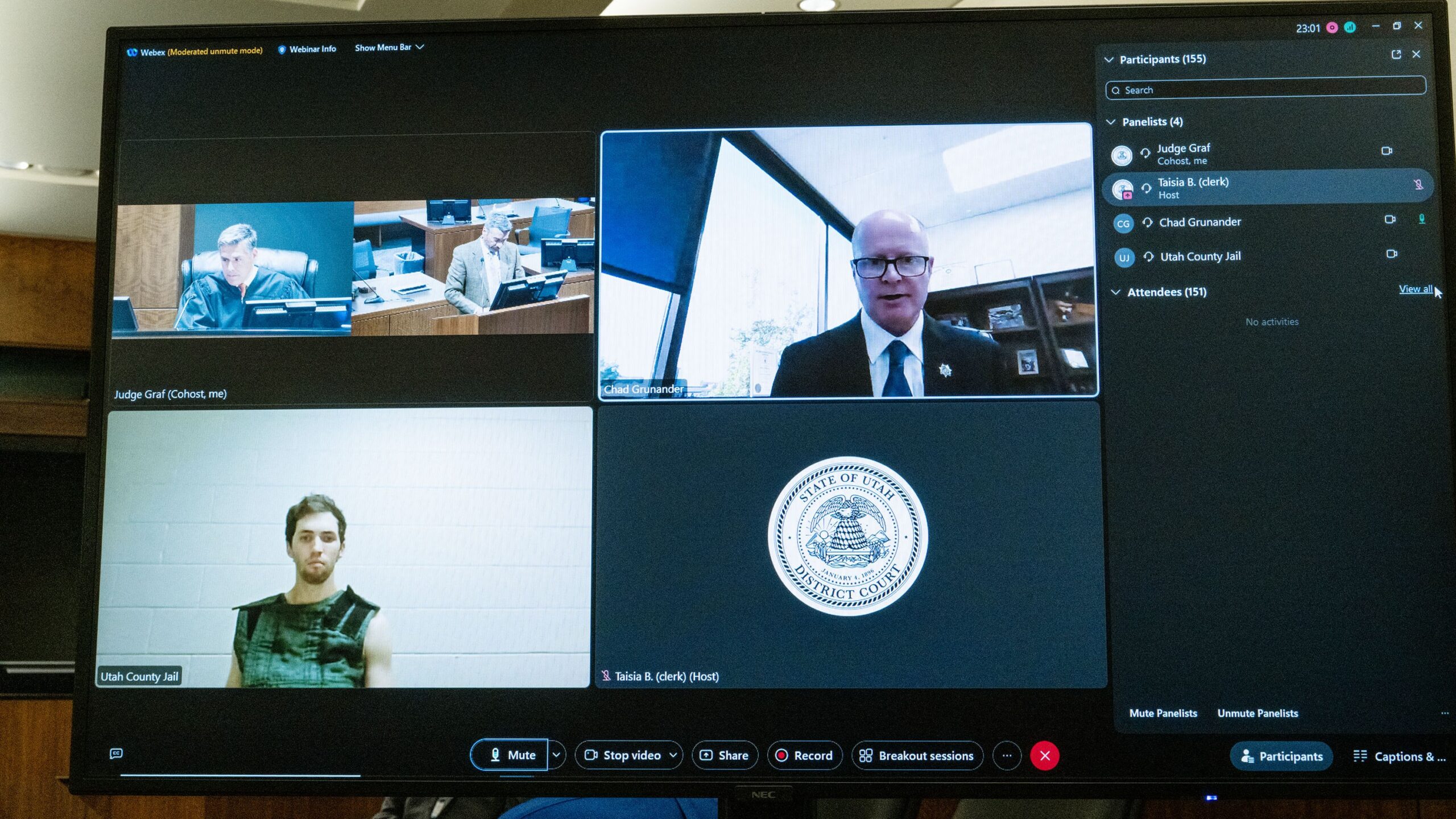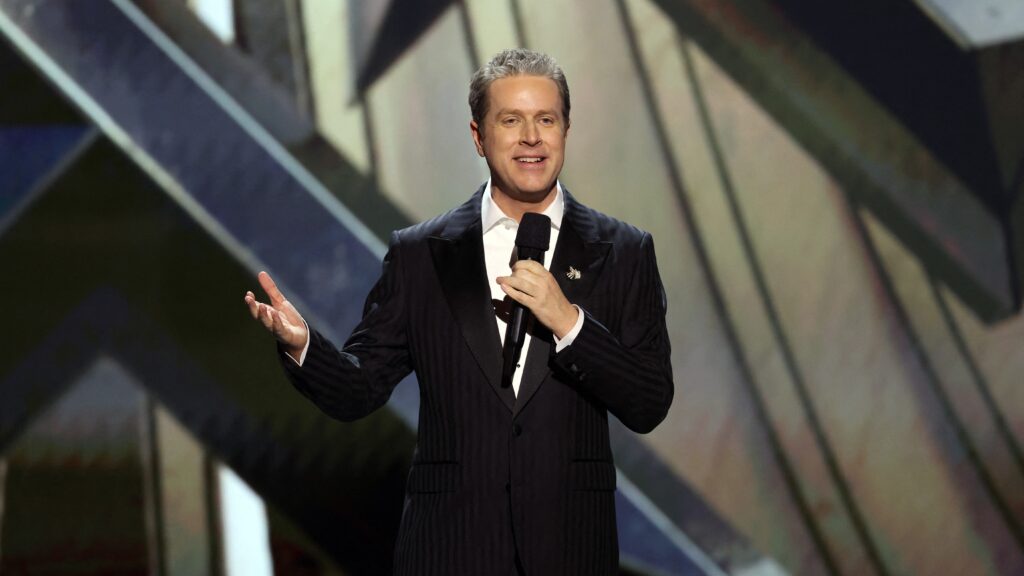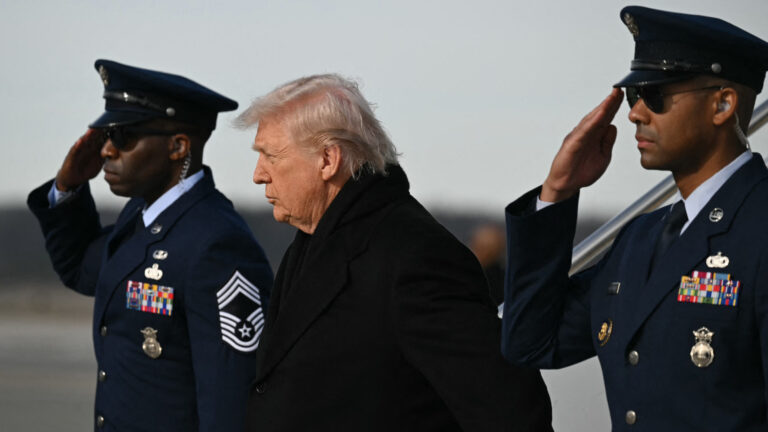Why did Tyler Robinson murder Charlie Kirk?
On the internet, where many of us spend so much of our time these days, there was no shortage of answers: he did it because he had been brainwashed and triggered by fascist ideology; because he had been brainwashed and triggered by anti-fascist ideology; because Israel paid or coerced him into doing it; or because his mind had been fried on the internet.
The confidence with which these theories were propounded didn’t correspond to the available evidence needed to justify it and what light they emitted was far more revealing of the burning preoccupations of those who proffered them than of the mind of the assassin himself.
This isn’t to say that we’re completely in the dark about Tyler Robinson and his mindset. ‘I had enough of his hatred,’ he told his romantic partner and roommate in a text message when asked why he assassinated Kirk. According to his mother, he had become increasingly political over the past year, leaning left. Unlike Decarlos Brown Jr, who horrifically stabbed to death Iryna Zarutska in Charlotte, North Carolina, in August, Robinson had no diagnosis of schizophrenia and his violence was coldly deliberate and carefully planned. Nor, like, the Minneapolis trans school shooter Robin Westman, does he seem to have been a nihilist who killed for the sake of killing or in emulation of the mass killers he worshipped. But this sheds only the faintest light on who Robinson was and what he wanted.
To better understand the psychology and radicalization of Robinson, I recently spoke with one of the foremost scholars of mass violence, Professor Adam Lankford of the University of Alabama. For well over a decade now, Lankford has immersed himself in the shadow world of suicide terrorists, school shooters and other rampage killers, drawing on mostly open-source data to show where, how and why they kill. One thread that runs through his work is how the media feeding frenzy around mass violence serves to inadvertently reward mass killers with the attention and renown that some of them crave; another is how personal and ideological motives often come together in political violence. More recently, he has turned his attention to incels and the role of sexual frustration in violent behaviour.
‘It’s also possible that Robinson wanted to send a message…if you continue to spout your hatred, what happened to Charlie Kirk will happen to you’
On the face of it, it looks like Robinson used violence as an instrument for advancing a political goal that he came to believe couldn’t be advanced by any other means. The goal was to silence Charlie Kirk, who was an outspoken critic of LGBTQ rights. ‘Some hate can’t be negotiated out,’ Robinson explained to his male partner who is transitioning. This way of thinking is misguided and unhinged, but it has a rationale and from the perspective of a certain kind of extremist politics it makes sense. Indeed, if you sincerely believed that someone’s speech is a form of violence that threatens your very existence or that of the group you closely identify with, you’d be remiss if you didn’t resort to extreme measures to silence that person. Beyond this, it’s also possible that Robinson wanted to send a message to the political tribe from which Kirk came: if you continue to spout your hatred, what happened to Charlie Kirk will happen to you. If all this is correct, Robinson is the archetypal terrorist who murdered not for personal reasons but for politics.
As I laid out this account to Lankford over a video call, he nodded along in agreement, but then added further layers and complications to it, gently muddying its glib coherence. He noted that Robinson didn’t leave a manifesto setting out his worldview or the decisive turning-points in his shooter ‘journey’ . This, I told Lankford, surprised me: if you’re going to murder a public figure for political reasons, why not shape the narrative yourself by penning a note explaining those reasons? Even the moronic Luigi Mangione cobbled together a handwritten document in which he tried, however half-heartedly, explaining himself (‘frankly I do not pretend to be the most qualified person to lay out the full argument’).
Robinson did, however, engrave messages on his bullet casings, which he knew would be discovered, although his intention here seems to have been more to confound than to enlighten. In text messages to his partner after the assassination, Robinson clarified that ‘the messages are mostly a big meme, if I see “notices bulge uwu” [a reference to furry and online role-play culture] on fox new[s] I might have a stroke…’
Lankford told me that while many ideologically-motivated mass shooters leave a manifesto or ‘legacy token’, as he calls it, not all do. Referring to data he collected on 193 public mass shooters who attacked in the United States from 1966 to 2023, of those with ‘extreme ideological interests’ 57 per cent left behind some sort of legacy token. Robinson, though not a mass shooter, left behind only question marks, which he seems not in the least interested in answering himself; he has reportedly refused to cooperate with investigators.
One possible reason why Robinson didn’t leave a manifesto is that he thought he could get away with the killing. In a text message to his partner, he wrote: ‘To be honest I had hoped to keep this secret till I died of old age.’ It is difficult to know whether Robinson is being fully sincere about this, but given that he didn’t publicly announce his intention to ‘go postal’ beforehand, as many public performance killers are apt to do, nor seek to explain it afterwards it has the ring of truth to it.
‘Robinson wanted to disappear into the shadows and stay there’
More crucially, it would seem to rule out fame or notoriety as motives for the assassination. Unlike the halfwit Mangione, whose efforts to escape justice were as woeful as his execrable manifesto, Robinson wanted to disappear into the shadows and stay there. ‘He seemed to think he was going to do the shooting and then just return to his normal life, which is kind of amazing to me,’ Lankford said, adding that this had much to say about the killer’s fragile, almost infantile, grasp on the reality of what he was doing.
Playing the devil’s (or trans) advocate, I asked Lankford whether he thought Robinson assassinated Kirk in order to make a sacrificial gift to his partner, a trans woman, and that his driving motive was to defend her honour in the face of Kirk’s transphobia. I suggested that Robinson acted not out of hate but love—both for his partner and indeed for all sexual minorities. Lankford didn’t take the bait. ‘That would be framing it as altruism,’ he responded. ‘And I’m sceptical of giving the killer that much credit.’ ‘It would have been easy for him say: “I did this for you” and he didn’t say that,’ Lankford said.
Instead, Lankford sketched out a more promising line of investigation focusing on Robinson’s relationship with his conservative family. ‘There seems to be a disconnect between the perpetrator and his father, although we don’t know a lot about that,’ Lankford said. Robinson, for his part, alluded to his father in a text message to this partner, describing him as ‘pretty diehard maga’. Lankford went on: ‘He’s not only politically moving to the left but is also gay with a partner who is transitioning. This is set up for so much family conflict and this may have been a factor here.’
‘It would be easy to imagine that Charlie Kirk is, to him, a symbol of the lack of belonging he feels from those around him’
I asked Lankford if Robinson’s motives were therefore more personal than political. He suggested that they may have been an amalgam of both and that Robinson’s relationship with his partner made his political grievances personal and all the more deeply felt for that. ‘Another interesting element is where he lives,’ Lankford further elaborated, referring to Utah, a highly conservative and God-fearing state. ‘It would be easy to imagine that Charlie Kirk is, to him, a symbol of the lack of belonging he feels from those around him.’
There is also that other, less tangible world that Robinson inhabited: the one out there in cyber-space and on anonymous messaging boards and apps most normies have never heard of. According to The New York Times, Robinson and his partner spent much of their time at home playing video games together and with friends online. You wonder how idling away your days in this disembodied meme-world of infantilized play and endless toggling back-and-forth between gaming, celebrity gossip and viral atrocity videos might eat away at your sense of reality.
Whatever else it may have done to Robinson, it seems to have made him very puerile. This can be seen in the juvenile engravings he etched on his bullets—‘If you read this, you are GAY Lmao’—and it’s evident in the text messages he sent to his partner, where he veers wildly from fretting over losing his grandfather’s rifle, which he used for the assassination, to joking about its lethality to expressing his love for his partner. It’s also there in Robinson’s gormless, vacant face captured on CCTV footage as he stands holding an ice cream while on the run after shooting Kirk.
The really difficult puzzle, Lankford suggested, is working out how these two worlds intersected to create the wider context in which Robinson acted, while at the same time resisting the temptation to selectively mine them for evidence that aligns with one’s own pet issue or politics. Robinson could make things easier by cooperating with the authorities, but this very much depends on what he says and how reliable a narrator he turns out to be if he does start talking.
Related articles:







